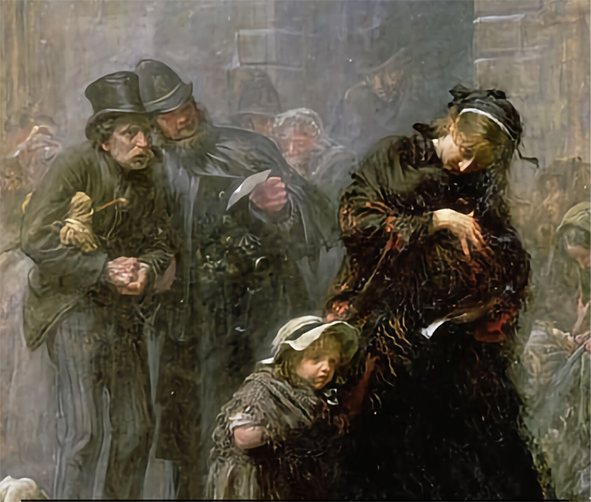The following curious anecdote is from a book about elephants, written by a French gentleman, named Jacolliot, and we will let the author tell his own story:
In the autumn of 1876 I was living in the interior of Bengal, and I went to spend Christmas with my friend, Major Daly. The major’s bungalow was on the banks of the Ganges near Cawnpore. He had lived there a good many years, being chief of the quartermaster’s department at that station, and had a great many natives, elephants, bullock-carts, and soldiers under his command.
On the morning after my arrival, after a cup of early tea (often taken before daylight in India), I sat smoking with my friend in the veranda of his bungalow, looking out upon the windings of the sacred river. And, directly, I asked the major about his children (a boy and a girl), whom I had not yet seen, and begged to know when I should see them.
“Soupramany has taken them out fishing,” said their father.
“Why, isn’t Soupramany your great war-elephant?” I cried.
“Exactly so. You cannot have forgotten Soupramany!”
“Of course not. I was here, you know, when he had that fight with the elephant who went mad while loading a transport with bags of rice down yonder. I saw the mad elephant when he suddenly began to fling the rice into the river. His ‘mahout’ tried to stop him, and he killed the mahout. The native sailors ran away to hide themselves, and the mad elephant, trumpeting, charged into this inclosure. Old Soupramany was here, and so were Jim and Bessy. When he saw the mad animal, he threw himself between him and the children. The little ones and their nurses had just time to get into the house when the fight commenced.”
“Yes,” said the major. “Old Soup was a hundred years old. He had been trained to war, and to fight with the rhinoceros, but he was too old to hunt then.”
“And yet,” said I, becoming animated by the recollections of that day, “what a gallant fight it was! Do you remember how we all stood on this porch and watched it, not daring to fire a shot lest we should hit Old Soupramany? Do you remember too, his look when he drew off, after fighting an hour and a half, leaving his adversary dying in the dust, and walked straight to the ‘corral,’ shaking his great ears which had been badly torn, with his head bruised, and a great piece broken from one of his tusks?”
“Yes, indeed,” said the major. “Well, since then, he is more devoted to my dear little ones than ever. He takes them out whole days, and I am perfectly content to have them under his charge. I don’t like trusting Christian children to the care of natives; but with Old Soup I know they can come to no harm.”
OLD SOUP WITH BAMBOO ROD.
“BESIDE THE CHILDREN STOOD OLD SOUP
WITH A LARGE BAMBOO ROD IN HIS TRUNK.”
“What! you trust children under ten years of age to Soup, without any other protection?”
“I do,” replied the major. “Come along with me, if you doubt, and we will surprise them at their fishing.”
I followed Major Daly, and, after walking half a mile along the wooded banks of the river, we came upon the little group. The two children—Jim, the elder, being about ten—both sat still and silent, for a wonder, each holding a rod, with line, cork, hook and bait, anxiously watching the gay corks bobbing in the water. Beside them stood Old Soup with an extremely large bamboo rod in his trunk, with line, hook, bait, and cork, like the children’s. I need not say I took small notice of the children, but turned all my attention to their big companion. I had not watched him long before he had a bite; for, as the religion of the Hindoos forbids them to take life, the river swarms with fishes.
The old fellow did not stir; his little eyes watched his line eagerly; he was no novice in “the gentle craft.” He was waiting till it was time to draw in his prize.
At the end of his line, as he drew it up, was dangling one of those golden tench so abundant in the Ganges.
When Soupramany perceived what a fine fish he had caught, he uttered one of those long, low gurgling notes of satisfaction by which an elephant expresses joy; and he waited patiently, expecting Jim to take his prize off the hook and put on some more bait for him. But Jim, the little rascal, sometimes liked to plague Old Soup. He nodded at us, as much as to say, “Look out, and you’ll see fun, now!” Then he took off the fish, which he threw into a water-jar placed there for the purpose, and went back to his place without putting any bait on Old Soup’s hook. The intelligent animal did not attempt to throw his line into the water. He tried to move Jim by low, pleading cries. It was curious to see what tender tones he seemed to try to give his voice.
Seeing that Jim paid no attention to his calls, but sat and laughed as he handled his own line, Old Soup went up to him, and with his trunk tried to turn his head in the direction of the bait-box. At last, when he found that all he could do would not induce his willful friend to help him, he turned round as if struck by a sudden thought, and, snatching up in his trunk the box that held the bait, came and laid it down at the major’s feet; then picking up his rod, he held it out to his master.
“What do you want me to do with this, Old Soup?” said the major.
The creature lifted one great foot after the other, and again began to utter his plaintive cry. Out of mischief, I took Jimmy’s part, and, picking up the bait-box, pretended to run with it. The elephant was not going to be teased by me. He dipped his trunk into the Ganges, and in an instant squirted a stream of water over me with all the force and precision of a fire-engine, to the immense amusement of the children.
The major at once made Soup a sign to stop, and, to make my peace with the fine old fellow, I baited his hook myself. Quivering with joy, as a baby does when it gets hold at last of a plaything some one has taken from it, Old Soupramany hardly paused to thank me by a soft note of joy for baiting his line for him, before he went back to his place, and was again watching his cork as it trembled in the ripples of the river.
Four little houses, blue and round,
Hidden away from sight and sound.
What is in them? The leaves never tell,
But they know the secret very well.
The daisies know, and the clover knows;
So does the pretty, sweet wild rose.
Don’t be impatient, only wait
Just outside, at the leafy gate;
Soon a fairy will open the door,
And let out birdies—one, two, three, four!

